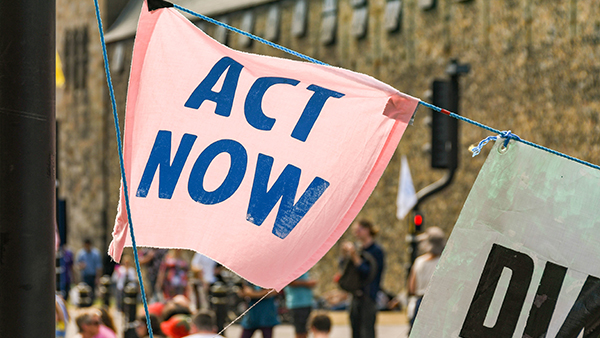So true they said it twice: I was surprised yesterday to see a column in The Times by Libby Purves with content very similar to one by Philip Collins published in the same paper last Friday. The question the two posed was why the Conservatives seem to care so little about the impression created by, on the one hand, auctioning time with cabinet members to millionaire oligarchs and tax evaders while, on the other, becoming ever more aggressive in their approach to people on benefits.
But no sooner is my old campaigner’s gaze fastened on the failings of the Tory strategy when along comes Labour with yet another example of message indiscipline and incoherence. Yet, and feel free to call me simplistic, the imperative for each of the major parties seems absolutely clear.
Labour, seen as the more caring and in touch party but lacking economic credibility, should have only one message to which they should stick religiously (to paraphrase James Carvill, it is only when a politician thinks they will be physically sick if they repeat the same line again that a few voters will have started to recognise it). That message should focus on an iron determination to manage the public finances responsibly.
Ed Balls should make a major speech with the shadow cabinet ministers representing major spending departments sitting behind him like obedient Soviet-era apparatchiks. In it he should pledge that if faltering economic growth imperils his debt targets it will be public spending, not deficit reduction, that will bear the brunt of adjustment. All the shadow ministers should then make ‘tough choices ahead’ the theme of the speeches they make to their various stakeholders. In fact, as far as I can tell, they are all going around promising or implying they will be able to dispense greater generosity if Labour wins.
The imperative for the Conservatives seems just as clear. They should focus almost all their energy rebutting the public’s perception that they are complacent, nasty and on the side of the rich. They should go to great lengths to show they really get how tough things continue to be for ‘hard working families’ and make it absolutely clear that in the even harder fiscal choices ahead they expect the most well off to make the biggest sacrifices.
Both parties do from time to time articulate the message I am proposing but when they do it competes unsuccessfully with so much other noise. To be fair to the campaigners, this is partly a consequence of the fixed term parliament extending the old four week run in to the election to a four month slog.
If I am at all right about this (and I did work on some rather successful election campaigns, oh yes) the question is why the parties are not doing what seems obvious. One explanation is they refuse to say stuff they don’t believe. Perhaps the Conservatives really think the super-rich are all well deserving wealth creators, that Ed Miliband is mentally defective and that the biggest problem in Britain is the workshy on their lavish benefits. Maybe Labour deep down doesn’t believe in balancing the books and has no intention of making any more promises on deficit reduction than it absolutely needs to: ‘Politicians refuse to stick to vote winning message because it lacks intellectual rigor’? Well, maybe.
Another explanation is that the campaigns are weakly managed. Certainly there are many stories about failings in Labour’s high command, and the views of most Conservatives about David Cameron are reminiscent of the kind of things Aston Villa fans were saying about Paul Lambert until he has sacked last week. But a bit of message discipline, with the election 90 days away: surely it can’t be that hard?
So in the end I plump for a third explanation. It is simply that, whatever the parties say, no one seems to be listening. To show discipline in any endeavour we all need a bit of encouragement. But the polls are stuck and the public view the election campaign with lordly indifference. Furthermore the whole shooting match is generally being reported by the national media with a mixture of myopic laziness and knowing disdain. Politicians are trying anything because nothing seems to work.
We know that waving our arms and shouting doesn’t help foreigners understand us but when nothing else is working we all end up doing it. Similarly politicians know that having lots of different, conflicting messages doesn’t work but they just don’t know what else to do.
This really is a folie a deux (one that I think we may be debating this week on Moral Maze). We refuse to respond positively to anything the politicians say. They in return become desperate, self-indulgent and unfocussed, which makes us even more disengaged and so it goes on.
As someone who loves politics and is excited by elections I hate to say it, but the best thing for all of us right now might be for the campaign to be suspended for two months; no more gaffes, no more dumb-arse policy announcements, no more vacuous rhetoric, no more tendentious headlines. By all means continue the battle on the ground - local campaigning and door knocking – but suspend the battle in the air. Then maybe when it all kicks off again in mid-April we might start to listen and they might start making sense.
Related articles
-
The public are ready to go further and faster on net zero
Anthony Painter
The public are ahead of policy-makers and, indeed, most of the business world. COP26 is an enormous opportunity to catch up. Global leaders should take it.
-
Can progressives ever stop the in-fighting?
Matthew Taylor
Biden's victory has caused the left and moderates to fracture again.
-
Can President Biden bring America together again?
Anthony Painter
There is a long road ahead for the new president.




Join the discussion
Comments
Please login to post a comment or reply
Don't have an account? Click here to register.
I'd speculate that we're seeing a reversal of the logic that won those Blair elections. Neither major party is fighting for the middle ground because they're not worried about the direct threat of the other, they're worried about the threat to their flanks: e.g. UKIP and the SNP/Greens, who might dangerously split their core vote even in safe seats. They've seen what happened to moderate Republicans who rejected the Tea Party line.
I found Matthew blog very refreshing. I myself am a proponent of Keynesian economics avowed anti Neo Liberal, Chris is right in his assertion that the problem with Labour was it abandonment of Keynesian economics in favour of a laissez-faire neo liberal economic model.
"if faltering economic growth imperils his debt targets it will be public spending, not deficit reduction, that will bear the brunt of adjustment". Can you explain why you think Ed Balls should make this committment? Given that faltering economic growth is being caused by deficit reduction, doubling down on a failed policy seems foolish. What's the benefit in reinforcing failure? Do you think the public will reward a politician who makes the economy worse, but sticks to his rhetoric?
The fundamental failure of the Labour Party is to abandon Keynsian economics in the hope that being smiled at by millionaires and bankers will be an adequate replacement. Surely you can't think that the neo-liberal radicals are right in their abandonment of conventional macroeconomic policy in favour of "expansionary contraction". That's been tried and it's failed. The SNP is right about this. If you disagree, do you evidence?
Democratic socialists believe that both theeconomy and society should be run democratically—to meet public needs, not tomake profits for a few. To achieve a more just society, many structures of ourgovernment and economy must be radically transformed through greater economicand social democracy so that ordinary citizens can participate in the manydecisions that affect our lives.
Democracy and democratic socialism go handin hand. Wherever on the planet the idea of democracy has taken root, thevision of socialism has also taken root.
It is not the wish of the democratic socialist to create anall-powerful government bureaucracy, neither is it the wish to have largemulti-nationals control our society either. But rather social andeconomic decisions should be made by those whom they affect the most.
Today, corporate executives answer only to themselves and afew wealthy stockholders they make the economic decisions that affectsmillions of people. Resources are often used to make money for capitalistsrather than to meet human needs. Workers and consumers who are affected byeconomic institutions should own and control them or at the very leasthave a say in how they are run
Social ownership is the key to sustainable economic growthand it could take many forms, such as worker-owned cooperatives such as theJohn Lewis Partnership. The John LewisPartnership's 90,000 Partners (workers) own the leading UK retail businesses -John Lewis and Waitrose. Their founder's vision was of a successful businesspowered by its people and its principles define the unique company today. Theprofits and benefits created by their success are shared by all our Partners(workers).Another form of social ownership is publiclyowned enterprises managed by workers and consumer representatives thiscould be that the railways could operate in future.
Democratic socialists want to see as much decentralizationas possible. While the large concentrations of capital in industries such asenergy and steel may necessitate some form of state ownership, manyconsumer-goods industries might be best run as cooperatives.
Democratic socialists do not believe in a centrally plannedeconomy, but do believe that democratic planning can shape major socialinvestments like mass transit, housing, and energy, market mechanisms areneeded to determine the demand for many consumer goods.
The capitalistassumption that starvation or greed are the only reasons people work is clearlymisguided. People enjoy their work if it is meaningful and enhances theirlives. They work out of a sense of responsibility to their community and society.The long-term goal of democratic socialism is to eliminate all but the mostenjoyable kinds of labour, but recognizing that unappealing jobs will long bein existence. These tasks should be spread among as many people as possiblerather than handed out on the basis of class, race, ethnicity, or gender, asthey are under capitalism. And this undesirable work should be among the best,not the least, rewarded work within the economy. For now, the burden must beplaced on the employer to make work desirable by raising wages, offeringbenefits and improving the work environment. In short a combination of social,economic, and moral incentives will motivate people to work and not the arbitaryremoval of welfare benefits as is currently the case.
Many Nations on the European continent have long enjoyedtremendous prosperity and relative economic equality thanks to the policiespursued by social democratic parties. These nations used their relative wealthto insure a high standard of living for their citizens—high wages, health careand subsidized education. Most importantly, social democratic parties supportedstrong labour movements that became central players in economicdecision-making. Sadly with globalization of capitalism (neo–liberalism), theold social democratic model has become harder to maintain.
Competition from low-wage labour markets and the constantfear that industry will move abroad to avoid taxes and strong labourregulations has diminished the ability of nations to embark on economic reform.Social democratic economic reform must now happen at the Global level and multinationalsmust be brought under democratic controls, now, more than ever a move to ademocratic socialist economic model is of paramount importance. As we havealways known, the welfare of working people in Scotland, Wales, England andNorthern Ireland depends largely on livings standards in Italy or Indonesia andcutting ourselves off is equally foolish. We must reform the whole economicsystem so it that can withstand the power of multinationals and global banks.
The place where we can start the conversation of democraticsocialist reform can be our institutes of higher learning it is here whereideas are formulated and policy discussed and developed. Being an active partof that discussion is a critical job for young Labour socialists. Labour has towork hard to change people’s misunderstandings about socialism, to broadenpolitical debate, and to overcome many students’ lack of interest in engagingin political action. Off-campus, too, Schools, colleges and universities areimportant to British political culture. There are in our daily cultural lives,young people are instrumental turning the tide against racism, sexism andhomophobia, as well as the conservative myth of the virtue of “free”markets.
Those who call themselves democratic socialists are proudof what they are. But, no matter what they call themselves, conservatives willuse it against us. Anti-socialism has been repeatedly used to attack reformsthat shift power to working class people and away from corporate capital. In1946, National Health Service was attacked as “socialized medicine” and thiswas defeated. We must face, and overturn the stigma attached to the “S word andnot be ashamed of it,” Democratic socialists are proud of the traditions uponwhich they are based, they remember the past but are not rooted in the past.Finally, the democratic socialist has a vision of a better world and that isworth shouting about.